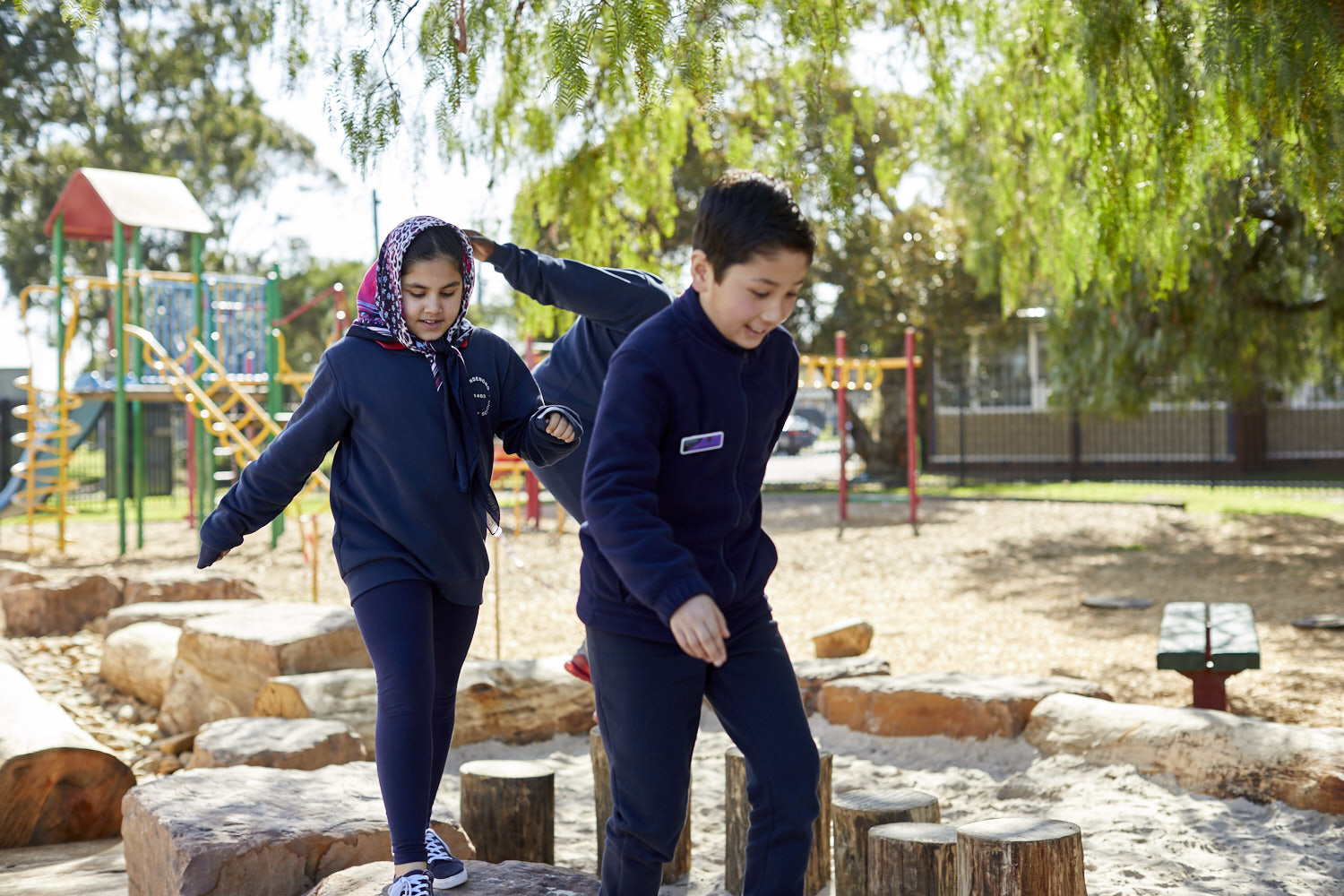On this page
Download this Fact Sheet:
Fact Sheet: Building resilience in children (3.1 MB, PDF)
How can early learning services and schools build resilience?
Early learning services and schools are places where children and young people spend a great deal of their time. These learning communities play a key role in helping children develop resilience through formal and informal learning opportunities.
It's important to recognise that every child’s experience of resilience may vary based on their unique background, abilities, and needs.
Resilience is key for developing positive mental health and wellbeing.
Caring and supportive relationships
Strong relationships within the family and community can help at times of stress or adversity. This support and security is a protective factor for children and young people’s mental health and wellbeing. You can support healthy relationships by:
- promoting family-centred practice and reaching out to families
- talking with family about how they support their young person and provide information on how they can help their child or young person develop resilience
- encouraging families to draw on the resources available in their community in times of need.
Research indicates a positive relationship with at least one caring adult outside of the child or young person’s immediate family is related to greater mental health and resilience.
As an educator, you might develop connections with children in your learning community which are based on warmth, empathy, and respect.
Connection to diverse groups of friends is also valuable. Even very young children can develop a sense of self and self-confidence through their peer relationships. You can encourage healthy relationships by:
- promoting a welcoming, friendly and safe environment
- promoting inclusion, and addressing bullying, sexism, discrimination and racism
- role modelling perspective-taking and compassion
- celebrating diversity – help ensure children feel they belong
- teaching the skills to work together effectively (for example, communication and problem-solving skills)
- requiring cooperation (for example, structuring tasks that require working in small groups)
- empowering children and young people to ask for support.
Set expectations
Setting high, but achievable expectations for all children by considering their individual strengths and needs can help them build resilience. You can assist by:
- introducing children and young people to manageable ideas/challenges/goals
- encouraging agency by observing and describing the many creative ways children can respond to a task
- making sure that goals/tasks/responsibilities are achievable by breaking them down into small steps
- asking them questions to help them solve problems and promote further learning
- scaffolding their learning and offer help when necessary, without taking over
- respond in a warm and sensitive manner. This helps children learn they are safe, that their needs will be taken care of and they’ll be supported with their coping skills.
Provide participation opportunities
Provide opportunities for all children to actively participate in their learning and social environment.
- view children and young people as capable contributors to their world (for example, by providing tasks that require a meaningful contribution, letting them make decisions and experience consequences)
- give them meaningful choices
- express your belief in their capacity to learn and contribute
- help them learn from mistakes
- teach them about values
support them to express their views and listen to their views.
Whole learning community strategies
Whole learning community strategies can include:
- implementing social and emotional learning programs within the curriculum to build emotional literacy, coping skills and resilience. Learn more about evidence-based programs in the Be You Programs Directory
- ensuring support systems are in place (for example, a key educator to talk to, home room structures, provision of school counsellors or partnerships with external mental health professionals)
- ensuring policies reflect the most up-to-date knowledge on building resilience
- promoting partnerships with families, the community, kinship networks and external support services.
Be You Resources
Learn more about creating welcoming culturally responsive learning environments in Reflect, Respect, Respond: Protocols for culturally respectful engagement with First Nations communities.
Find tips on compiling a stakeholder list of key First Nations community members and organisations in your area.
Be You Professional Learning
Learn more about incorporating practices that can enhance children and young people's resilience in the Learning Resilience domain.
Learn about creating and maintaining strong partnerships with families in the Family Partnerships domain.
Find tips on providing support for children, young people and their families, by helping them access information and internal and external supports, in the Provide module of the Early Support domain.
-
References
Australian Government Department of Education (AGDE). (2022). Belonging, Being and Becoming: The Early Years Learning Framework for Australia (V2.0). Australian Government Department of Education for the Ministerial Council. Retrieved from: https://www.acecqa.gov.au/sites/default/files/2023-01/EYLF-2022-V2.0.pdf.
Cahill, H., Beadle, S., Forster, R., Smith, K., & Farrelly, A. (2014). Building resilience in children and young people. Melbourne: Melbourne University Graduate School of Education. Retrieved from http://www.education.vic.gov.au/Documents/about/department/ resiliencelitreview.pdf.
Council of Australian Governments (COAG). (2009). Investing in the early years: A national early childhood development strategy. Canberra: Commonwealth of Australia. Retrieved from https://www.startingblocks.gov.au/media/1104/national_ecd_strategy.pdf.
Epstein, A. S. (2009). Me, you, us: Social-emotional learning in preschool. Ypsilanti: HighScope Press.
Ginsburg, K. R. (2007). The importance of play in promoting healthy child development and maintaining strong parent-child bonds. Pediatrics, 119(1), 182-191.
Werner, E.E. (1995). Resilience in development. Current Directions in Psychological Science, 4(3):81-85.
-
External links
